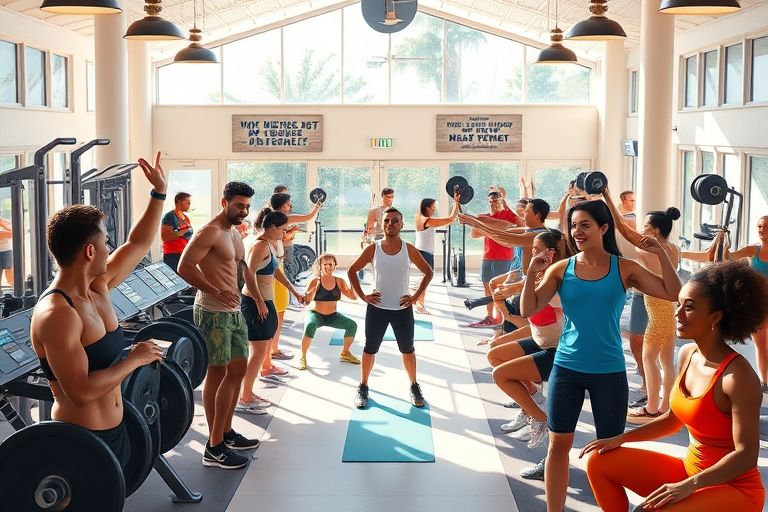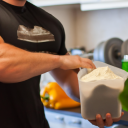

Bodybuilding has become increasingly popular in recent years, with more and more people hitting the gym to sculpt their bodies and achieve the coveted chiseled physique. The allure of bodybuilding lies in its promise of strength, power, and aesthetic appeal. But is bodybuilding truly a healthy lifestyle choice?
Let's delve deeper into the world of bodybuilding and uncover the truth behind this fitness phenomenon.
On the surface, bodybuilding seems to offer a plethora of physical benefits. Regular weightlifting and resistance training can increase muscle mass, improve strength and endurance, and boost overall fitness levels. Additionally, bodybuilding can help enhance bone density, reduce the risk of osteoporosis, and improve cardiovascular health.

However, it is important to note that extreme bodybuilding practices, such as excessive weight lifting and the use of performance-enhancing substances, can lead to serious health issues. Overtraining can strain muscles, joints, and ligaments, increasing the risk of injuries. Furthermore, the misuse of supplements and steroids can have detrimental effects on the liver, heart, and hormonal balance.
Bodybuilding is not just about physical strength; it also has a significant impact on mental well-being. Engaging in regular exercise releases endorphins, which are natural mood boosters that promote feelings of happiness and reduce stress. Moreover, bodybuilding can foster discipline, determination, and self-esteem, as individuals witness the transformation of their bodies through hard work and dedication.

Nevertheless, an unhealthy obsession with body image and an excessive focus on appearance can lead to body dysmorphia and eating disorders. The pressure to achieve an unrealistic standard of muscularity can take a toll on mental health, causing anxiety, depression, and a distorted self-perception.
Proper nutrition plays a crucial role in bodybuilding. Athletes need to consume a balanced diet that includes an adequate amount of protein to support muscle growth and repair. A variety of fruits, vegetables, whole grains, and healthy fats are also essential to provide the necessary energy and nutrients for optimal performance.

However, it is important to note that extreme dieting practices, such as severe calorie restriction and eliminating entire food groups, can have detrimental effects on the body. These practices can lead to nutrient deficiencies, hormonal imbalances, and a weakened immune system. It is essential for bodybuilders to work with a qualified nutritionist to develop a sustainable and balanced eating plan that supports their fitness goals.
Rest and recovery are often overlooked aspects of bodybuilding, but they are crucial for achieving optimal results and maintaining overall health. Muscles need time to repair and grow after intense workouts, and adequate rest allows the body to recharge and prevent burnout.

Overtraining and pushing the body beyond its limits can lead to fatigue, decreased performance, and an increased risk of injuries. It is important for bodybuilders to prioritize quality sleep, incorporate rest days into their training schedule, and listen to their bodies to avoid overexertion.
So, is bodybuilding a healthy lifestyle? The answer lies in finding a balance between pushing physical boundaries and prioritizing overall well-being. When approached with moderation, bodybuilding can offer numerous physical and mental benefits. However, extreme practices and an unhealthy obsession with appearance can have detrimental effects on both physical and mental health.
Ultimately, it is crucial for bodybuilders to prioritize their health and well-being, listen to their bodies, and seek guidance from qualified professionals to ensure they are engaging in a sustainable and healthy approach to bodybuilding.
Remember, the journey to a healthy and fit body is not just about the destination but also about enjoying the process and maintaining a holistic approach to wellness.